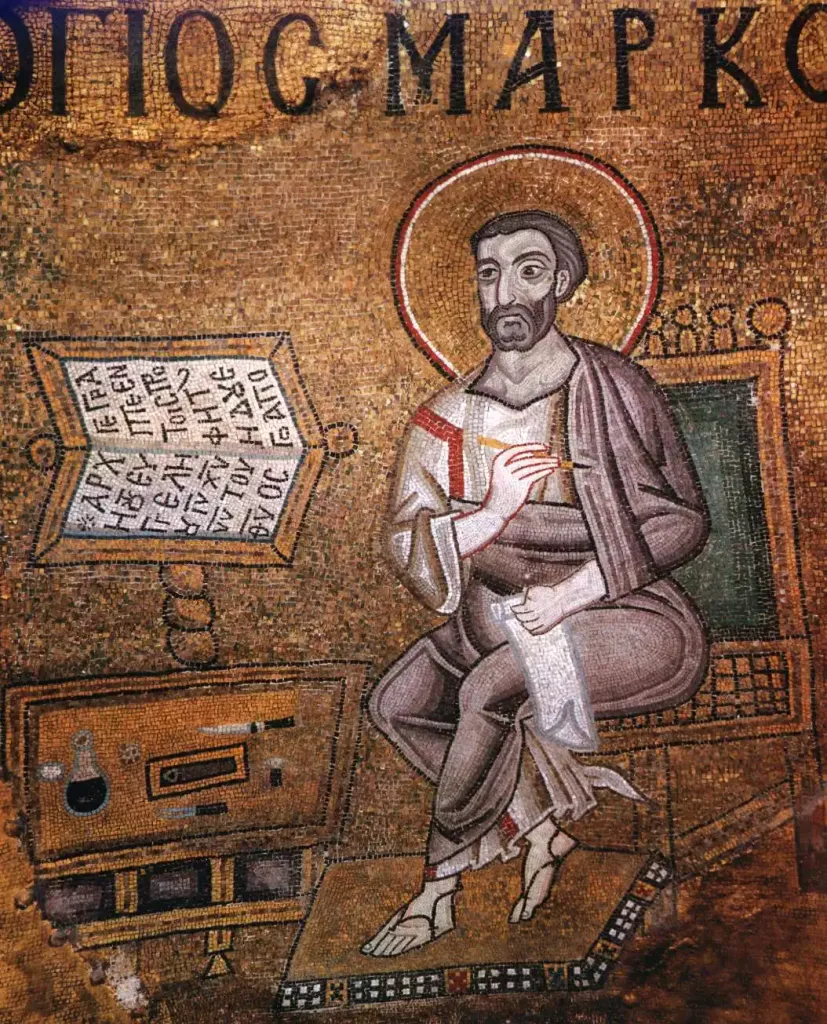
Saint Mark, traditionally acclaimed as the author of the Gospel of Mark, is a figure shrouded in both historical reverence and mystery. Although specific details about his life, including exact dates of birth and death, remain largely speculative, his contributions to early Christian literature are undeniably significant. The Gospel of Mark, the earliest of the four canonical gospels, is often credited to his authorship, marking a cornerstone in Christian theology and history.
Saint Mark’s Identity and Background
Saint Mark, often identified with John Mark mentioned in the New Testament, emerges as a pivotal figure in early Christian tradition. His narrative, interwoven with the spread of Christianity, offers insights into the socio-religious context of the 1st century. The Gospel attributed to him is distinguished by its succinct and action-oriented style, reflecting a sense of urgency in communicating the Christian message.
According to early Christian tradition, Mark was a close associate of Peter, one of the twelve apostles of Jesus. This relationship is crucial in understanding the perspective and content of the Gospel of Mark. The account, believed to be based on Peter’s teachings and experiences, presents a vivid and immediate portrayal of Jesus’ ministry. Mark’s Gospel, while brief, is rich in its narrative technique, often employing parables and miracles as key storytelling elements.
The Gospel’s authorship, traditionally ascribed to Mark, has been a subject of scholarly debate. However, the prevailing view within early Christian communities attributes this work to him, recognizing his unique contribution to the canon of the New Testament. Mark’s influence extends beyond the Gospel, as he is also linked to the founding of the church in Alexandria, Egypt, further cementing his legacy in Christian history.
The Gospel of Mark: Composition and Characteristics
The Gospel of Mark stands out for its straightforward and concise narrative style, a stark contrast to the more detailed accounts in the Gospels of Matthew and Luke. Its composition is generally dated to around 70 AD, making it the earliest written Gospel. This timing is significant, as it places the work in a period of tumultuous change and persecution for early Christians.
Mark’s Gospel is characterized by its immediacy and sense of urgency, often using the term “immediately” to transition between events. This style conveys a compelling and fast-paced account of Jesus’ life, focusing primarily on his deeds and miracles. The narrative structure is simple yet effective, delivering the core message of Jesus’ teachings and actions in a manner easily accessible to its early audience.
The thematic focus of the Gospel of Mark centers on the identity of Jesus as the Messiah and the Son of God. It begins with the prophetic announcement of Jesus’ arrival and swiftly moves through his baptism, ministry, and eventual crucifixion. Mark’s portrayal of Jesus emphasizes his miraculous powers and his significant role in fulfilling Jewish prophecy.
Theological elements in Mark’s Gospel also highlight the concepts of suffering and discipleship. The narrative presents Jesus as a figure who endures hardship and rejection, a theme that resonated with the early Christian community facing persecution. Mark’s account invites readers to reflect on the meaning of true discipleship, marked by sacrifice and steadfast faith in the face of trials.

Influence of the Gospel of Mark in Early Christianity
The impact of the Gospel of Mark on early Christianity cannot be overstated. As the first written account of Jesus’ life and teachings, it set a precedent for the narrative structure and thematic focus of the later Gospels. Mark’s portrayal of Jesus as a suffering Messiah had a profound influence on the development of early Christian doctrine, emphasizing the importance of faith and resilience in the face of adversity.
This Gospel also played a crucial role in shaping the early Christian understanding of Jesus’ identity and mission. Mark’s emphasis on Jesus’ miraculous works and his fulfillment of Old Testament prophecies helped to define the early Christian view of Jesus as both fully human and fully divine. The Gospel’s straightforward and accessible narrative made it an invaluable tool for the early spread of Christianity, providing a clear and compelling account of Jesus’ life and teachings to new converts.
Saint Mark’s Legacy and Enduring Significance
Saint Mark’s legacy extends beyond the authorship of the Gospel. He is revered as a foundational figure in the Christian faith, particularly for his role in establishing the church in Alexandria. His contributions to the spread of Christianity in the early days of the church are commemorated by Christians worldwide.
The Gospel of Mark continues to be a vital source of theological and historical insight. Its unique perspective on Jesus’ life and ministry offers valuable lessons on discipleship, faith, and the nature of the Messiah. Saint Mark’s portrayal of Jesus has shaped Christian theology for centuries and continues to inspire believers today.
The figure of Saint Mark and his attributed work, the Gospel of Mark, hold a place of great significance in Christian history. His contributions to the early church and the shaping of Christian doctrine resonate through time. As the purported author of the earliest Gospel, Saint Mark provided a foundation upon which the Christian faith has built its understanding of Jesus Christ, the Messiah.
Feast Day: April 25
Patron Saint of: Alexandria, Lion tamers, Notaries, Venice
References
- Martin, Dale B. “New Testament History and Literature.” Yale University Press, 2012.
- Perkins, Pheme. “Introduction to the Synoptic Gospels.” Eerdmans Publishing Co., 2007.
- “The Life and Gospel of Saint Mark the Evangelist.” National Shrine. Accessed December 28, 2023.
- “The Relics of St. Mark.” Fitzwilliam Museum. Accessed December 28, 2023.
